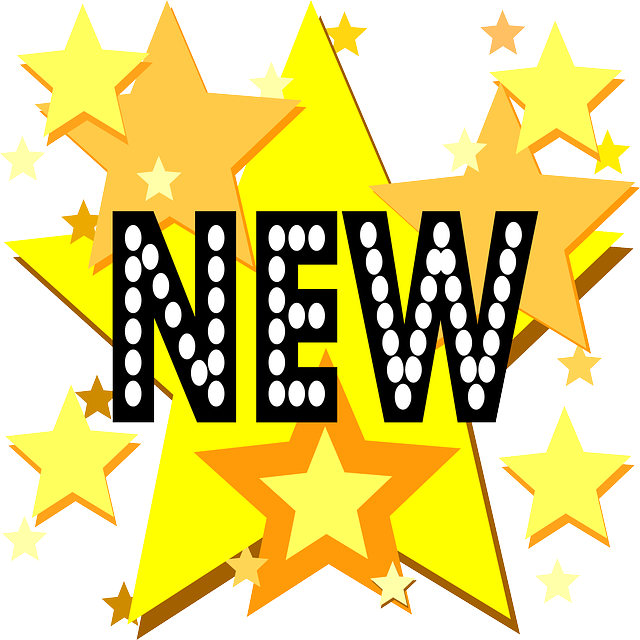An effective MSP marketing strategy leverages a multi-faceted approach that includes engaging with clients and professionals through Facebook Groups, targeting potential leads on social media platforms like LinkedIn, Twitter, and Facebook by utilizing advanced targeting features, and integrating relevant hashtags to increase visibility. Regular analysis of social media performance data is essential for refining marketing tactics, understanding audience behavior, and optimizing content strategy, timing, and frequency. By adapting to trends and leveraging real-time analytics, MSPs can maintain a dynamic presence that attracts high-quality leads and supports sustained business growth. This approach ensures that MSPs are not only reaching their target market but also establishing themselves as thought leaders in the IT support and cybersecurity services industry.
In today’s digital era, a robust MSP marketing strategy hinges on leveraging social media platforms effectively. This article delves into the most impactful tactics for generating leads within the managed services provider (MSP) sector. From the professional networking potential of LinkedIn to the real-time engagement offered by Twitter, we explore how each platform can be tailored to attract and convert MSP prospects. We’ll also cover crafting content that resonates, utilizing video to demonstrate expertise, the benefits of Facebook groups for community building, the precision of social media advertising, the strategic use of hashtags, and the importance of data-driven insights for refining your approach. Elevate your MSP marketing strategy with these social media tactics designed to fuel lead generation and business growth.
- Leveraging LinkedIn for B2B Engagement and Lead Generation in the MSP Market
- Crafting Compelling Content Strategies to Attract MSP Prospects on Social Media
- Utilizing Twitter for Real-Time Marketing and Customer Service in the MSP Industry
- Video Marketing: Showcasing Expertise and Solutions through YouTube and Live Streams
- The Power of Facebook Groups for Networking and Building Community among MSP Clients
- Employing Social Media Advertising to Target Ideal MSP Customers Effectively
- Strategic Use of Hashtags for Increased Visibility and Engagement on Social Platforms
- Analyzing and Refining Your MSP Marketing Strategy with Data-Driven Insights from Social Media Analytics Tools
Leveraging LinkedIn for B2B Engagement and Lead Generation in the MSP Market

In the realm of B2B engagement, LinkedIn stands out as a powerful platform for MSPs to refine their marketing strategy and generate leads. By optimizing your company profile with relevant keywords and clear service offerings, MSPs can position themselves as thought leaders within the industry. Engaging with content through comments, shares, and creating original articles or posts that address common pain points of your target audience not only increases visibility but also establishes credibility. LinkedIn’s advanced targeting options in its advertising platform allow for precise lead generation campaigns, ensuring that your marketing efforts reach decision-makers who are most likely to be interested in your services. Furthermore, MSPs can capitalize on LinkedIn’s networking capabilities by connecting with potential clients and joining industry-specific groups to share insights and foster relationships that can lead to new business opportunities. By consistently providing valuable content and maintaining an active presence, MSPs can effectively leverage LinkedIn as part of their comprehensive marketing strategy to drive engagement and generate high-quality leads within the competitive MSP market.
To further enhance lead generation on LinkedIn, MSPs should consider utilizing LinkedIn’s Sales Navigator tool, which offers additional features like saved searches and lead recommendations tailored to your ideal customer profile. Additionally, the use of LinkedIn’s InMail feature enables direct communication with prospects who are outside your existing network, thus expanding your reach. By combining these sophisticated tools with a content-rich strategy that showcases expertise and addresses industry challenges, MSPs can significantly boost their lead generation efforts and build a robust pipeline of potential clients on this professional networking platform.
Crafting Compelling Content Strategies to Attract MSP Prospects on Social Media

Crafting compelling content strategies is a cornerstone of effective MSP marketing on social media platforms. To attract prospects, MSPs should focus on creating content that resonates with their target audience’s pain points and aspirations. By leveraging insights from analytics tools to understand the behaviors and preferences of potential clients, MSPs can tailor their content to address common challenges faced by businesses in need of IT support. This data-driven approach ensures that the content is not only engaging but also highly relevant, thereby increasing the likelihood of conversion.
Moreover, a successful MSP marketing strategy on social media involves a mix of educational and promotional content. Educational content positions the MSP as a thought leader by providing valuable insights, tips, and best practices related to IT management and cybersecurity. This not only establishes credibility but also demonstrates the MSP’s expertise in navigating the complexities of technology solutions for businesses. Promotional content, on the other hand, highlights specific services, offers, or success stories that showcase the tangible benefits of partnering with the MSP. By maintaining a balance between informative and promotional material, MSPs can effectively nurture leads through the sales funnel, ultimately driving lead generation efforts on social media platforms.
Utilizing Twitter for Real-Time Marketing and Customer Service in the MSP Industry

In the realm of managed service providers (MSPs), Twitter offers a dynamic platform for real-time marketing and customer service. An effective MSP marketing strategy on Twitter involves leveraging its fast-paced nature to engage with clients and prospects instantaneously. By monitoring industry-related hashtags, MSPs can identify and participate in conversations relevant to their audience. This not only positions the MSP as an authority within the field but also allows for immediate response to customer inquiries and technical support issues, fostering a responsive brand image.
Furthermore, Twitter’s functionality for real-time updates makes it an ideal medium for disseminating timely information about service updates, security breaches, or technology trends. MSPs can utilize this feature to alert their followers of urgent matters, thereby enhancing customer trust through transparency and reliability. Additionally, Twitter’s targeted advertising options enable MSPs to reach potential clients effectively by focusing on specific demographics, interests, and behaviors. By integrating a strategic approach to content creation, customer engagement, and proactive support, MSPs can harness Twitter as a powerful tool in their marketing arsenal, driving lead generation through consistent and relevant online presence.
Video Marketing: Showcasing Expertise and Solutions through YouTube and Live Streams

Incorporating video marketing into an MSP’s marketing strategy can significantly enhance lead generation efforts by showcasing expertise and solutions in real-time. YouTube, with its vast audience and robust search functionality, serves as an ideal platform for MSPs to publish educational content, product demos, and client testimonials. By creating a library of informative videos that address common IT challenges and provide insights into the latest technological advancements, MSPs can position themselves as thought leaders in the industry. This not only builds credibility but also engages potential clients at various stages of the buyer’s journey.
Furthermore, live streaming on platforms such as YouTube Live or social media networks can take this a step further by offering immediate value and interaction. Hosting Q&A sessions, webinars, and live troubleshooting events not only demonstrates an MSP’s ability to solve problems effectively but also fosters a sense of community among viewers. By leveraging these real-time interactions, MSPs can connect with their audience on a personal level, addressing specific pain points and offering tailored solutions, which in turn can drive lead generation through targeted calls-to-action that encourage viewers to reach out for more information or services.
The Power of Facebook Groups for Networking and Building Community among MSP Clients

Within an effective MSP marketing strategy, leveraging Facebook Groups can be a potent tool for both networking and fostering a sense of community among clients. These groups serve as a dedicated space where MSPs can engage directly with their target audience, sharing valuable content, answering questions, and building relationships that extend beyond transactional interactions. By joining existing industry-specific or local business groups on Facebook, MSPs gain insights into the challenges and needs of their potential clients, allowing for tailored solutions and services. Moreover, initiating one’s own niche-focused group can position an MSP as a thought leader and go-to resource within their field. This approach not only enhances brand visibility but also creates a supportive ecosystem where clients can exchange experiences, offer peer support, and advocate for the MSP’s services, thereby amplifying word-of-mouth referrals and lead generation efforts in a natural and organic manner. The key to success in these groups is consistent engagement with meaningful contributions that provide value, rather than overt self-promotion, which can be off-putting and counterproductive to building a loyal client community.
Employing Social Media Advertising to Target Ideal MSP Customers Effectively

In crafting an effective MSP marketing strategy, leveraging social media advertising is a pivotal move for targeting the ideal customers. Platforms like LinkedIn, Twitter, and Facebook offer sophisticated targeting options that allow managed service providers (MSPs) to reach businesses that fit their desired customer profile. By defining parameters such as company size, industry, job titles, and interests, MSPs can ensure their ads are seen by decision-makers who are more likely to engage with their services. Additionally, retargeting campaigns can re-engage individuals who have previously interacted with the MSP’s content but have not yet converted into leads. This approach helps in maintaining top-of-mind awareness and nurturing those prospects through the sales funnel.
Moreover, a successful MSP marketing strategy on social media should also involve a mix of organic and paid content. Organic posts can build brand presence and foster community engagement, while paid ads can provide immediate visibility and drive targeted lead generation. By creating compelling ad copy and visually appealing creatives that resonate with the target audience, MSPs can effectively communicate their value proposition and establish themselves as thought leaders in the industry. Regularly analyzing campaign performance through social media analytics tools allows for continuous optimization of targeting, messaging, and budget allocation, ensuring the MSP’s advertising efforts translate into meaningful leads and eventual customer acquisitions.
Strategic Use of Hashtags for Increased Visibility and Engagement on Social Platforms

Incorporating a strategic use of hashtags is a pivotal component of an effective MSP marketing strategy on social media platforms. By leveraging relevant and trending hashtags, Managed Service Providers (MSPs) can significantly enhance their content’s visibility to a broader audience. This approach allows for more targeted engagement with potential clients who are actively seeking solutions within the realms of IT support and cybersecurity services. For instance, using industry-specific tags such as #ITSupport, #CyberSecurity, or #MSP can direct content towards users specifically interested in these areas. Furthermore, MSPs should also consider local hashtags to attract businesses within their service area. Regular analysis of hashtag performance and trends ensures that the MSP’s content remains relevant and competitive, fostering sustained engagement and positioning the MSP as an authority in the field.
To maximize the impact of hashtag usage, MSPs should diversify their approach across different platforms. While Twitter might favor shorter, more concise hashtags, LinkedIn may benefit from longer, more descriptive tags that align with professional services. Additionally, MSPs should track the performance of their chosen hashtags, adjusting their strategy based on insights gained from engagement metrics and audience feedback. This dynamic approach to hashtag usage is a key element in an overarching MSP marketing strategy, aiming to capture interest, drive leads, and ultimately convert these leads into long-term client relationships.
Analyzing and Refining Your MSP Marketing Strategy with Data-Driven Insights from Social Media Analytics Tools

To effectively refine your MSP marketing strategy, leveraging data-driven insights from social media analytics tools is pivotal. These platforms provide a wealth of information on audience behavior, engagement patterns, and content performance, enabling MSPs to tailor their approach for optimal results. By regularly reviewing metrics such as follower demographics, post reach, and interaction rates, MSPs can identify which types of content resonate most with their target market. This allows for the strategic allocation of resources towards content creation and distribution that aligns with audience preferences and business objectives. Additionally, these insights help in understanding the timing and frequency of posts that yield the highest engagement, ensuring that your content reaches the intended audience when they are most active on social media. By incorporating this data into your marketing strategy, MSPs can make informed decisions that enhance lead generation efforts and foster a more efficient and effective online presence.
Furthermore, the integration of social media analytics into your MSP marketing strategy is not a one-time task but an ongoing process. It requires consistent monitoring and adjustment to stay ahead in a dynamic digital landscape. By setting up custom dashboards that track key performance indicators (KPIs), MSPs can maintain a bird’s eye view of their social media performance. This continuous evaluation allows for the identification of trends over time, enabling MSPs to adapt swiftly to changes in audience behavior or market conditions. By marrying this real-time data with strategic planning, MSPs can optimize their social media presence, ensuring that their marketing efforts are not only aligned with their business goals but also resonate with the evolving needs and interests of their potential client base. This proactive approach to using social media analytics tools positions MSPs to generate high-quality leads and build a robust pipeline for growth.
In conclusion, crafting a robust MSP marketing strategy that harnesses the full potential of social media is pivotal for lead generation and business growth. By leveraging LinkedIn for B2B engagement, developing content strategies that resonate with prospects on platforms like Twitter, producing expert-level content through YouTube and live streams, fostering community within Facebook Groups, effectively utilizing social media advertising to target your ideal clients, strategically employing hashtags for greater visibility, and analyzing performance with data-driven insights, MSPs can significantly enhance their online presence. Implementing these tactics cohesively not only positions your MSP as a thought leader but also creates a pipeline of quality leads that can drive sustained business success.



